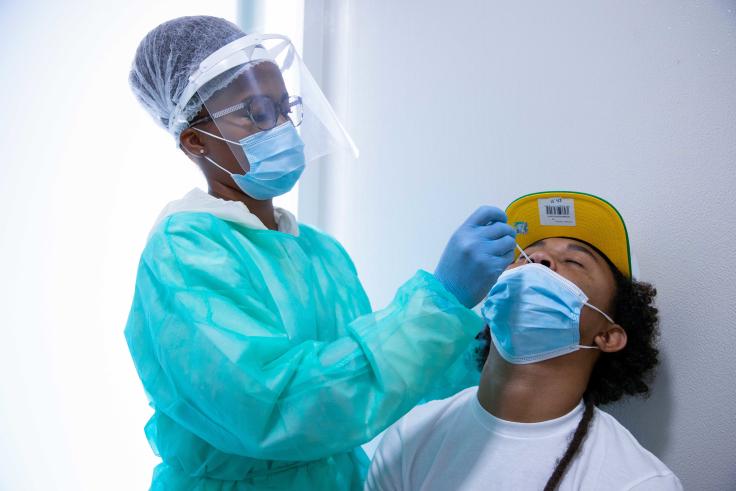 Strengthening National Health Security through the One Health Approach
Strengthening National Health Security through the One Health Approach
Background
The $4.5 million Pandemic Fund grant supports a partnership between the Cabo Verde Ministries of Health (MOH), Finance, Agriculture and Environment, national universities, and the World Bank (as the Implementing Entity) to strengthen the country’s national health security through a One Health approach. The grant builds on an additional $2 million in co-financing and $13 million in co-investment from these partners.
Cabo Verde is vulnerable to major health threats, including viral hemorrhagic fevers, cholera, and arboviruses. The country also has significant mobility of people and goods due to tourism as well as trade within the Economic Community of West African States (ECOWAS), which present major vulnerabilities for the introduction of emerging and re-emerging diseases. These risks are exacerbated by the impact of climate change on the country.
The Strengthening National Health Security through the One Health Approach Project was developed based on the priorities identified in the National Action Plan for Health Security (NAPHS) (developed following the 2019 Joint External Evaluation), as well as other evaluations and assessments including the National Plan for Combating Antimicrobial Resistance, the Zika After Action Review, the Malaria After Action Review, and others.
Project objectives
The Project’s overall objective is to strengthen health security and the resilience of the health system through a One Health approach. The project has two specific objectives: (1) to implement community-based surveillance for human and animal health and to institutionalize DHIS2 as an electronic surveillance platform at all levels of care, and (2) to develop a comprehensive and effective One Health laboratory system.
Implementation arrangements and key components
A High-Level Ministerial Project Steering Committee, chaired by the Deputy Minister of Health, will provide strategic guidance and review project performance. A project implementation team will be established within the MOH to support planning, implementation, monitoring and supervision, and coordination of all activities under the Project. The World Bank, as an IE, will receive and channel the grant funds for project implementation. Technical assistance will be provided by the World Bank.
The grant will finance the following key activities across three components.
- Enhancing surveillance capacity. The Project will equip the country’s Integrated Surveillance and Response, health stations, and points of entry with computers, personal protective equipment and basic medical supplies to facilitate data collection, storage and sharing. It will support the development and implementation of zoonotic disease preparedness and response plans and will update the National Plan against Antimicrobial Resistance. The component will support multi-sectoral simulation exercises to test essential capabilities based on priority risks at national and municipal levels. The component includes training on animal sanitary issues, field epidemiology, and veterinary public health. This component includes the purchase of electronic software systems and provides technical support for integration of the basic modules of health and surveillance programs into the country’s DHIS2 platform.
- Strengthening laboratory capacity. This component supports training in equipment maintenance, implementation of ISO 9001/2015 and ISO 15189 standards in veterinary, human health, and environmental health laboratories, the installation of new diagnostic techniques and training in those techniques, and other measures. These activities will be supported by additional complementary training in laboratory inspection capabilities, microbiology, and veterinary diagnostics.
- Building human resources capacity. This component supports creating and implementing biannual training programs for the National Center for Public Health Emergency Operations. The component will support training activities in epidemiology and antimicrobial stewardship, training of veterinary technicians and zoosanitary inspectors, as well as partnering with neighboring countries and additional relevant institutions to provide advanced Field Epidemiology Training Programs to technicians.
Expected outcomes
The Project is expected to achieve the following results: the implementation of an indicator- and event-based surveillance at all levels of care, including the private sector by 2024; DHIS2 working with integrated modules and interoperability between human, animal, and environmental health sectors by 2024; quality mechanisms, biosafety, and biosecurity implemented in 60% of laboratories by 2026; and trained human resources working in collaboration with the National Public Health Emergency Center by 2026. The results produced will contribute to reducing the negative health, social, and economic impact of public health emergencies in Cabo Verde.
For general inquiries: the_pandemic_fund@worldbank.org

